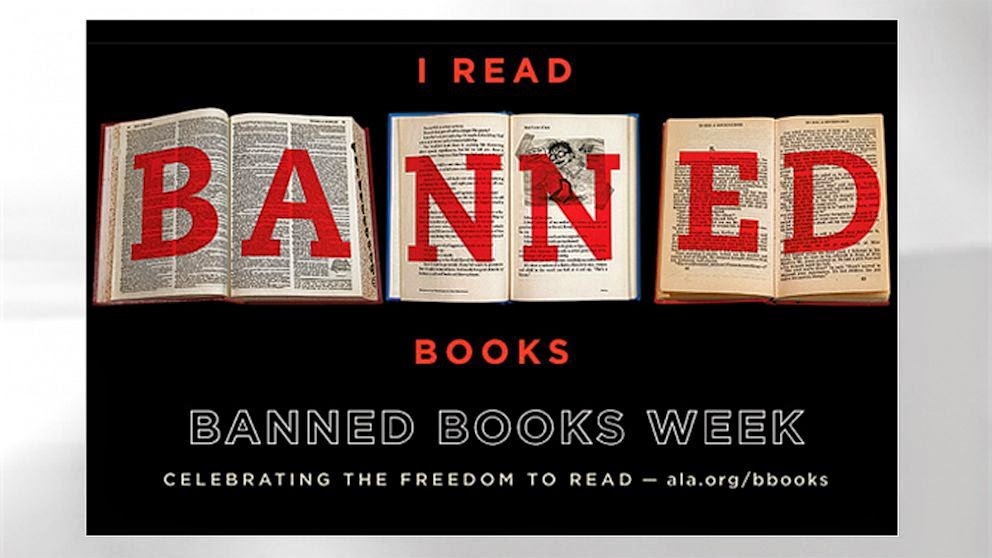Dawn Reader

from Open Door Coffee Co.; Hudson, OH; Oct. 26, 2016
Thursday, September 25, 2014
Banned Books Week
I learned on Facebook that this is Banned Books Week. Someone had posted a link to the site that lists some of the titles that exercise enough folks that they decide no one--usually, no young person--should read.
Mark Twain was delighted when he learned that some libraries were banning Adventures of Huckleberry Finn (1885). Here's a link to some information about that. As you'll read there, Twain joked that these bannings would be great for sales of his book. People would flock to read it just to see what all the kerfuffle was about.
Huck still has his problems. The original objections were to Twain's portrait of a delinquent who smoked and spoke improperly. In more recent years there have been objections to Twain's frequent use of our most proscribed word--objections that prompted one recent editor to replace all of those words with slave. Too bad. The best discussion of this that I know remains the footage that Ken Burns devoted to Huck Finn in his 2001 documentary Mark Twain. Chunks of it are on YouTube, and it's otherwise easy to acquire.
I had a kerfuffle of my own fairly early in my career (late 1960s, early 1970s) when I read Hemingway's story "The Short Happy Life of Francis Macomber" with my seventh graders. I got some calls (at school, at home) complaining about Hemingway's language (there is some mild profanity in the story--far milder that what I heard uttered by kids on the playground), some marital infidelity, a bullet-to-the-head (not graphic). My experience was, in a word, unpleasant.
(I deal with this incident a bit in my memoir Schoolboy, available on Kindle Direct: link.)
Anyway, the lists of banned books always reveal some surprises--as you'll see if you peruse the one I've linked above.
Teachers do need to be circumspect about the texts they select--and, in retrospect, "Macomber" may have been a bit much for twelve-year-olds. But kids know at a very early age that life is complex, complicated, painful--and not at all an idyll in the Hamptons. (That, by the way, is one of the reasons I liked the Harry Potter books--Rowling knows that kids know a lot more than we like to credit them for.)
Reading challenging texts--challenging in all sorts of ways--shows readers that they are not alone. That their feelings, worries, experiences are unique only in the variety of circumstance. Shakespeare lost his young son, Hamnet. Emerson buried a beloved young wife. Longfellow lost two wives--the second in a horrible, freakish fire at home. Mary Shelley lost three children; her beloved husband drowned. Stephen Crane lay dying of TB at 28. And on and on. Great writers deal with pure humanity in powerful ways. To the extent that we deny students access to these works we limit their horizons--which is quite the opposite of what education must do.
Subscribe to:
Post Comments (Atom)

No comments:
Post a Comment